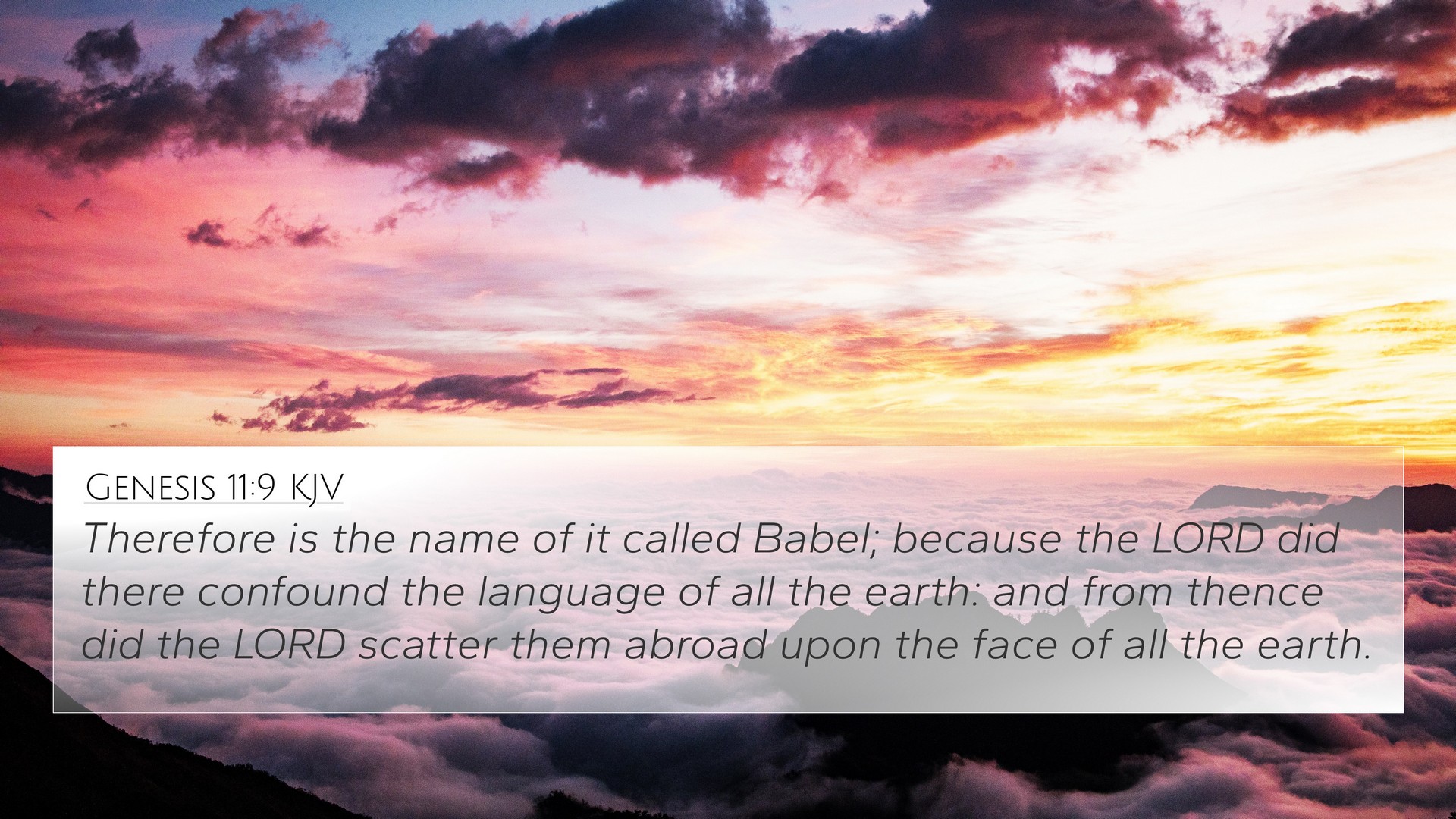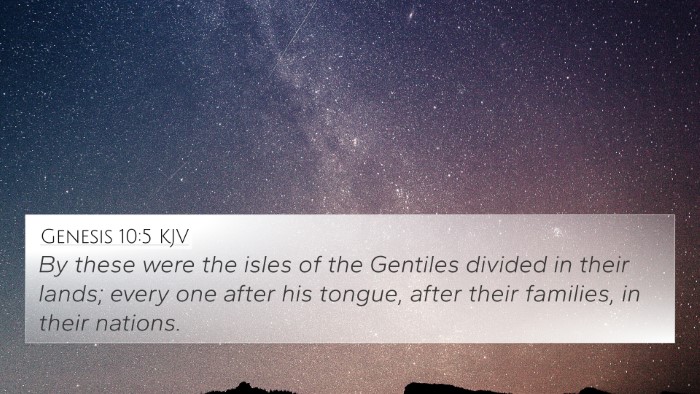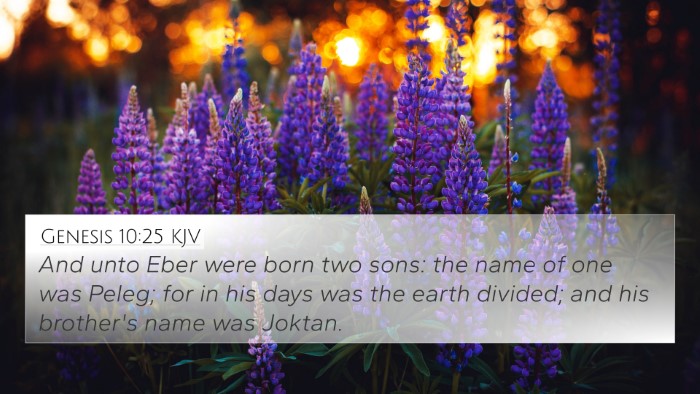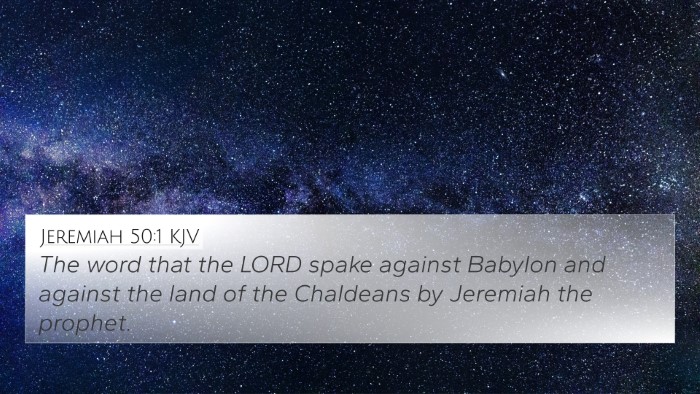Understanding Genesis 11:9
Verse: "Therefore is the name of it called Babel; because the Lord did there confound the language of all the earth: and from thence did the Lord scatter them abroad upon the face of all the earth." (Genesis 11:9)
Summary of Meaning
This verse narrates the origin of the name 'Babel' and serves as a theological explanation for the diversity of languages among humanity according to the biblical account. It highlights God's decisive intervention in human affairs to inhibit the prideful intentions of people who sought to build a tower to reach the heavens.
Commentary Insights
-
Matthew Henry: Matthew Henry emphasizes that Babel represents humanity's collective rebellion against God. The confusion of languages was a punishment that served to scatter people and thwart their attempts to construct a monument to their own glory. Henry connects this act of divine intervention with the overarching biblical theme of God's sovereignty over human pride.
-
Albert Barnes: Barnes interprets Babel as a symbol of confusion and division. He points out that this moment marked the beginning of various nations, each with its distinct language. Barnes explains that the scattering was both a punishment and a mercy, preventing humanity from becoming entirely unified in rebellion against God.
-
Adam Clarke: Clarke focuses on the linguistic aspect of the verse and its implications for the future of humanity. He explains that this conflation of languages underscores the diversity that God intended for human interactions. Clarke also suggests that the name 'Babel' sounds like the Hebrew word for 'confusion', reinforcing the purposeful nature of God’s act.
Bible Cross-References
Genesis 11:9 connects to several other scripture passages, enhancing its interpretation and understanding:
- Genesis 10:25 - Discusses the division of nations and languages.
- Exodus 23:33 - God instructs Israel not to adopt the practices of the peoples of Canaan.
- Isaiah 13:19 - Refers to Babel as a symbol of hubris and destruction.
- Jeremiah 50:2 - Mentions Babel in the context of prophecy against Babylon.
- Acts 2:6 - The day of Pentecost where the Holy Spirit enables communication in different languages.
- Revelation 17:5 - Babel as a representation of spiritual confusion and apostasy.
- 1 Corinthians 14:10-11 - Paul discusses the necessity of clear communication in spiritual matters.
- James 3:5-6 - Highlights the power of the tongue and the potential for confusion in speech.
Thematic Connections
The themes present in Genesis 11:9 can be related to other parts of Scripture, demonstrating the idea of God intervening in human pride:
- Human Pride and Divine Judgment: The story showcases how human ambition can overreach and provoke God’s judgment, seen in other narratives like the Fall (Genesis 3).
- Diversity of Nations: The multiplication of languages and cultures highlights God’s plan for humanity, a theme that resonates throughout the biblical narrative.
- Redemptive Purpose: Just as the scattering led to the establishment of nations, God later intends to restore unity through Christ, as discussed in Ephesians 2:14-16.
- Cross-referencing Biblical Texts: The linguistic diversity at Babel underscores the need for reconciliation among nations, a theme at the heart of the Great Commission (Matthew 28:19).
Practical Applications
Understanding Genesis 11:9 also carries practical implications for modern readers:
- Embrace Diversity: Recognizing that diversity in culture and language is part of God’s design encourages respect and appreciation for different backgrounds.
- Guard Against Pride: The lesson from Babel serves as a warning against prideful ambitions that seek to elevate self above God’s intended purposes.
- Communication: The emphasis on language highlights the importance of clear and respectful communication in all relationships.
Conclusion
Genesis 11:9 invites readers into a deeper understanding of God’s character and purposes in history. It challenges us to reflect on humanity's tendencies toward pride and the resulting need for divine guidance. By employing tools for Bible cross-referencing and thematic exploration, readers can gain richer insights into both this verse and its broader context within Scripture.











